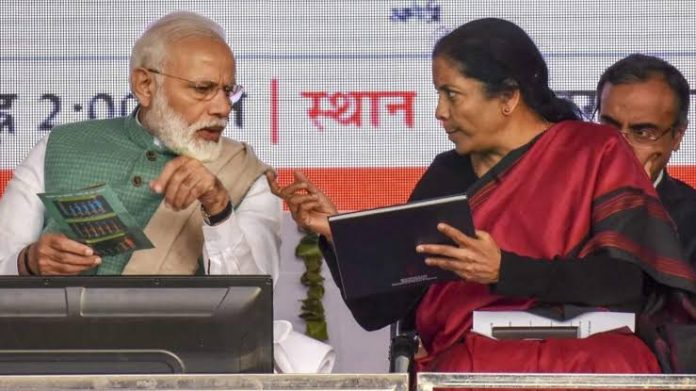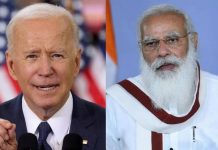Despite current economic conditions, the India Story can still be revived. Even after all the setbacks, the country’s economic fundamentals are still quite strong
Frank F. Islam. siyasat.net
Not long ago, India was the so-called “Darling of Davos,” a country destined to achieve greatness. In the first decade of this century, one could hardly find an investor in the west who was not enamored by the “India story” — which was described by The Economist as an “epic tale of a youthful nation throwing off its shackles to fulfill its destiny as an economic super power.”
Then came a series of miscalculations and poor legislative and executive moves, such as the retrospective tax law and the demonetization of 2016 which changed the narrative of the story. The good news is that the Indian government has begun to rewrite that story.
Recently, the Parliament passed a bill rolling back a controversial nine-year old law that allowed the central government to collect retrospective taxes on overseas deals made by businesses. Using the law, the brainchild of the then-finance minister and the future, now former President Pranab Mukherjee, the government had collected billions of dollars in taxes from as many as 17 companies on deals that occurred prior to 2012.
The legislation, which permits the government to tax businesses going back six decades, dealt a serious blow to India’s image as an investment friendly destination. Perhaps no single law had done as much damage to the country’s investment prospects since the days of Prime Minister Indira Gandhi’s nationalization of banks and other key sectors of the economy more than half a century ago.
The negative impact of the retrospective taxes on the international investor confidence has been substantial. Two companies, telecom giant Vodafone and the British oil company Cairn Energy, challenged the law in various courts outside of India. Nearly 20 months ago, India was asked to pay more than $1.2 billion to Cairn and the company was in the process of seizing the country’s overseas assets worldwide, including in North America, Europe, East Asia and the Middle East.
The rollback of the tax legislation was one of the most positive signals New Delhi has sent to investors in a long while. According to news reports, the government will resolve at least 17 tax disputes by refunding at least $6.7 billion, approximately 500 billion rupees, collected in retrospective taxes, provided the companies are willing to drop their claims.
The scrapping of the retrospective tax law was not the only pro-reform legislation passed by Parliament in recent days. A bill that allows private investments in the insurance sector was also signed into law by President Ram Nath Kovind last week. Divestment of the four government-owned insurance companies has been one of the long-standing demands of international investors.
The passage of these two bills — which was overdue — represents a significant step in India’s macroeconomic reform process. It will go a long way in restoring investor confidence in India.
It could not have come at a better time. Even before the onset of Covid-19, which decimated economies all over the world, the Indian economy had lost steam. The GDP growth rate in 2019 was a meager 4 percent, down significantly from 6.53 percent in 2018 and less than half of the growth rate recorded in 2016. The economy hit rock bottom last year, when it contracted more than 7 percent because of the pandemic.
In addition, the consumer confidence index — which has a direct bearing on household spending that is key to growth — plummeted to a record low this summer.
Despite these current economic conditions, the India Story can still be revived. Even after all the setbacks, the country’s economic fundamentals are still quite strong. Notably, the foreign exchange reserves are at an all-time high, at $621 billion — fourth highest in the world.
Prime Minister Narendra Modi and Finance Minister Nirmala Sitaraman could easily right the ship, provided they continue on the reform path. The two new laws enacted this month show that they are serious about it. A number of additional measures are needed though to put the Indian economy completely back on track.
The Washington-based Center for Strategic & International Studies (CSIS), keeps a scorecard of economic reforms in India. It credits the government for reducing the corporate tax rate, and allowing majority foreign ownership in the defense and insurance sectors.
The CSIS notes, however, that the country “still has a range of regulations that limit business growth and job creation, in addition to limiting foreign investment.” Areas in which more needs to be done include foreign direct investment (FDI) caps, corporate taxes, bankruptcy and labor regulations.
Even after a few years of less-than average growth, many in the United States are still gung-ho about India. One such ardent believer in the India Story is Richard Verma, a former U.S. ambassador to India.
Speaking to students of an Indian university, the Indian American said. “I look out at the year 2030, for example, and I see an India that may lead the world in almost every category… “[The] most populous nation, the most college graduates, the largest middle-class, the most cell phone and Internet users, along with the third largest military and third largest economy, all coexisting in the world’s largest democracy, with 600 million people under the age of 25.”
Like Ambassador Verma, I am an Indian American who is very optimistic about the leadership potential of India in the world. My optimism though is stoked with a dose of realism.
2030 is less than a decade away. It may take a bit longer than that to achieve true leadership in the world because that is measured not just in numbers but in contributions and accomplishments domestically and on the world stage.
That leadership requires the proper planning, patience and perseverance, when there are setbacks such as those experienced recently, to reach India’s full potential. I know India and Indians have the capacity, competence and tenacity to reach the goal and am confident they will do so.
The India story is being revived now. It is a beginning step on the journey to world leadership.
(Frank F. Islam is an Entrepreneur, Civic Leader, and Thought Leader based in Washington DC. The views expressed here are personal)
(www.siyasat.net is Ahmedabad, Gujarat, India based Website, powered by Gujarat siyasat, a vernacular Fortnightly)

































